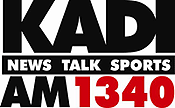
NASCAR will implement a no-testing policy next season in order to save millions of dollars during a massive downturn in the U.S. economy.
NASCAR officials met with teams' crew chiefs Friday morning at Homestead-Miami Speedway to inform them of the change. The official announcement is expected later today.
All tracks that have NASCAR events in the top three series -- Sprint Cup, Nationwide and Craftsman Trucks, which will be renamed Camping World Trucks next season -- are expected to be included in the testing ban.
The change also is expected to include Daytona International Speedway and the traditional two weeks of test sessions in January before the '09 season begins.
"It has pluses and minuses," said Pat Tryson, crew chief for the No. 2 Dodge driven by Kurt Busch. "Times are tough right now, so it's probably not that bad a thing for most people. It's the same for everybody. It may make the racing better with nobody having the opportunity to test."
This is a dramatic change from the idea NASCAR officials proposed to the teams two months ago, when the plan was to increase testing to 24 sessions per team, with every Cup track included. But the faltering economy caused NASCAR to rethink that idea and take a major step to limit costs.
Many teams spend more than $3 million a season on testing. Each test day can run more than $100,000 per car in expenses.
Cup teams had lobbied for more testing at Cup tracks to gain valuable data on the new car at each Cup facility. Only a few tracks had open test sessions this year, so teams were forced to test at tracks where NASCAR doesn't have Cup races.
The new policy will not keep teams from testing at non-NASCAR tracks.








